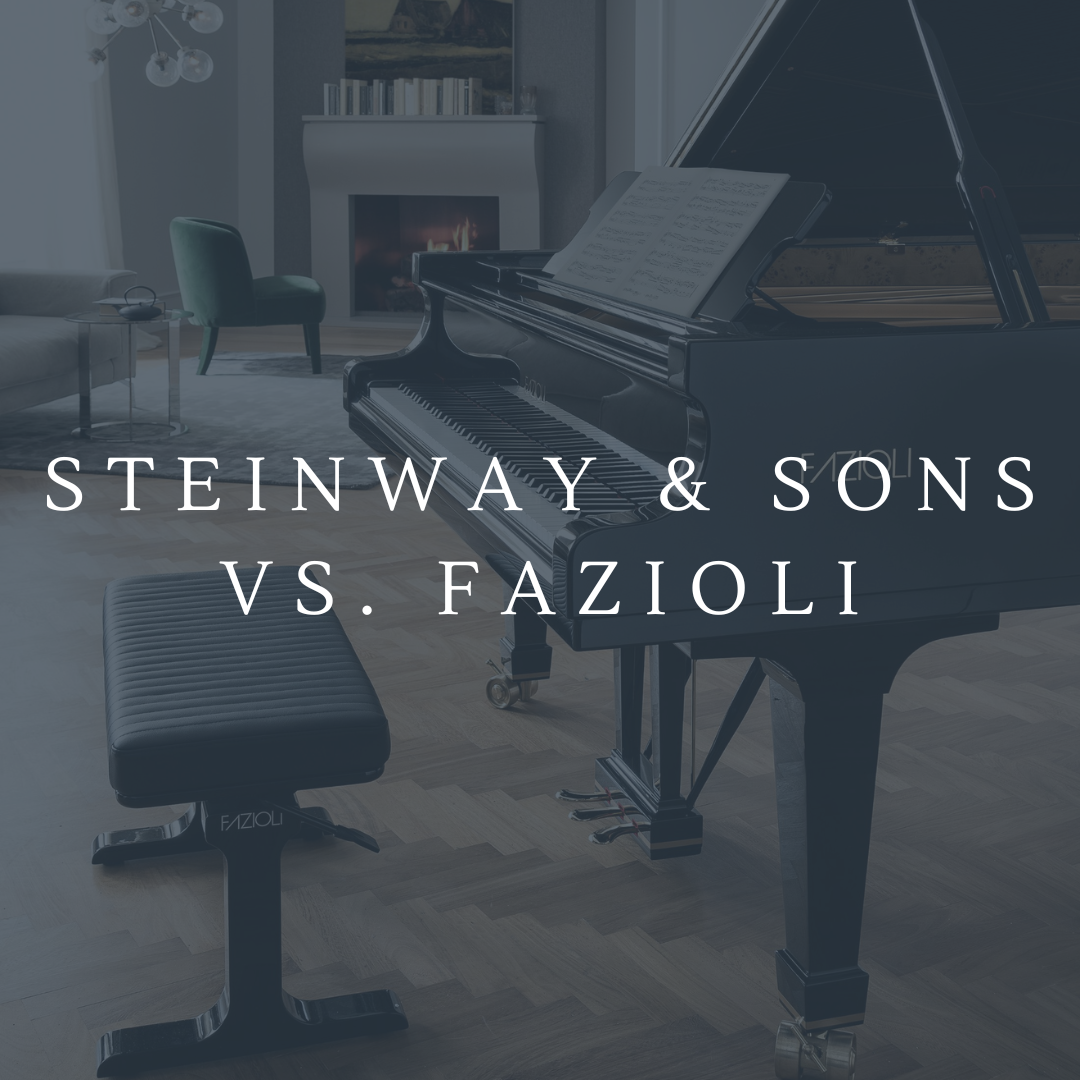
Without a doubt Steinway instruments command a lot of respect among pianists, amateurs, and piano aficionados. For those looking to purchase a used or rebuilt Steinway a broad array of options is available. The market for pre-owned Steinways actually became so big that even Steinway HQ in New York realized it was missing out. They eventually opened a separate department, Steinway Restoration Services, and entered the lucrative restoration market themselves.
So if you are in the market for a rebuilt Steinway, you this three part series will provide you some guidance starting out.
PART 1 : Piano Parts: Original or not Original
When pulling the curtain on the piano industry it becomes quickly apparent that there is a limited number of options of suppliers for various piano parts. Piano manufacturers often seek (sometimes with more and sometimes with less success) to hide their supply sources. There is not necessarily any desire of secrecy but simply the conviction that the product is more than just the sum of its parts. Of course, that also means that Steinway has been using and continues to use in many cases the same suppliers many other piano manufacturers also rely on. One example is a small wood products supplier in Canada, Piano Bolduc (https://pianosbolduc.com). Andre Bolduc, the owner, has made himself a name for producing excellent pin blocks and soundboards over the years. Many piano factories and piano rebuilding technicians purchase their soundboards and their pin blocks from Bolduc. So does Steinway along with other suppliers they have. Is there a difference between the high grade soundboards shipped to Steinway or to piano rebuilders? Most likely Steinway has its own specifications but rebuilders who worked for many years at Steinway and then joined other outfits confirm that they are not that much different (but later more on that).
Steinway’s own marketing pitch claims that in order to be a real Steinway, a piano needs to be rebuilt at its facilities or at minimum with Steinway parts purchased from them. However, for many years Steinway ran two distinctive factories: one located in Astoria, N.Y., and the other one in Hamburg, Germany. The two factories often used different suppliers all of which produce high quality parts.
Also, keep in mind that all manufacturers, including Steinway, ensure that they have many different suppliers for any one item. This hedges against the risk of being left without any parts in case one company should not be able to deliver. Steinway as well as any other manufacturer has several suppliers that it is buying soundboards from.
So what are your options when you want to ensure that your rebuilt Steinway has high quality parts?
What you should expect to hear:
Action Parts: Hammers and actions parts should come from Renner Piano Co. (https://louisrenner.com). This company has supplied piano action parts for many years to most European manufacturers and was recently purchased by Steinway. They continue to supply parts to technicians and other manufacturers. The keys of a Steinway piano are supplied by Kluge Klaviaturen, a German company that was also bought up by Steinway in 1998. A piano rebuilder can purchase keys from Kluge directly (https://www.kluge-klaviaturen.de)
Soundboards: The top suppliers for soundboards are Bolduc from Canada and Strunz (https://www.holzwerke-strunz.de/) from Bavaria and their soundboards. Steinway sources the wood and produces its own soundboards. However, rebuilders can purchase soundboards directly from both suppliers.
Strings: Often bass strings are made by the manufacturers themselves and they sell them to technicians. In the U.S. Mapes (https://www.mapesstrings.com) is a reliable source for high quality strings that many Steinway dealers rely on this supplier. While Steinway does sell replacement strings to the public, the company has limited the support to piano rebuilders and occasions have been reported where they refused to ship a full string set to a piano rebuilder.
Special Considerations: Not all Steinway parts are good for your…..
Not all current Steinway parts fit Steinway pianos. Until recently Steinway & Sons offered piano parts that could be retrofitted into older Steinway pianos from previous periods. Especially for action parts this was a very critical necessity because current Steinway actions differ significantly from their counterparts several decades ago. Until recently, Steinway supported and had on hand piano parts for pre-1984 pianos (This was the year that Steinway changed the action geometry in their instruments). This is not the case anymore making current Steinway action parts not very suitable for installation in vintage models. As a matter of fact, using current Steinway production parts for vintage, used pre-1984 Steinways would pose a significant challenge in installation and would add greatly to the cost. Most importantly it would weaken the piano’s performance. In such cases, technicians purchase their parts from L. Renner Parts Company offering better fitting parts at a lower cost.
Comments will be approved before showing up.


